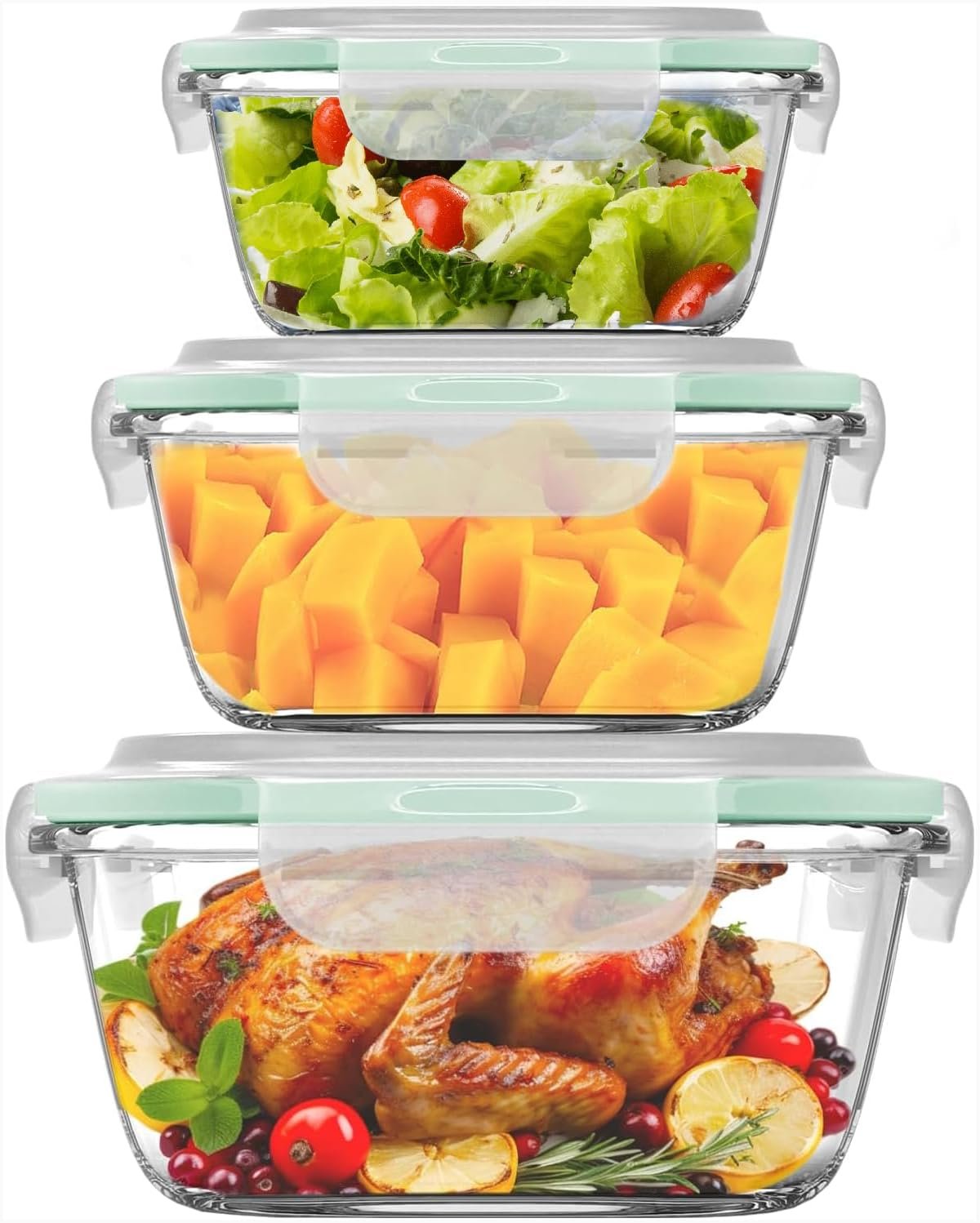Introduction
Freezing food is one of the best ways to preserve its freshness, taste, and nutritional value for longer periods. But here’s the thing—if you’re not using the right containers, your frozen food may lose its flavor or texture. The good news? There are specially designed freezer-friendly food storage containers that make sure your meals stay as delicious as the day you prepped them. In this guide, we’ll dive deep into the best freezer-friendly containers and how they can help you preserve fresh flavors, minimize waste, and stay organized.
Why Freezer-Friendly Storage Matters
The Importance of Proper Food Storage
Proper food storage in the freezer is crucial for maintaining the quality and safety of your food. When food isn’t stored correctly, it can become dehydrated, stale, or even suffer from freezer burn. The right containers will create a tight seal, ensuring that your food retains its moisture and flavor over time.
Avoiding Freezer Burn
Freezer burn happens when the water molecules in your food evaporate and then refreeze as ice crystals. This process can dry out your food and lead to unpleasant textures and flavors. The key to avoiding freezer burn is choosing containers that are airtight and moisture-proof.
Key Features of Freezer-Safe Containers
Durability and Material
Your freezer-safe containers should be tough enough to handle the cold without cracking. Look for materials like thick plastic, tempered glass, or silicone that can withstand freezing temperatures without becoming brittle.
Airtight and Leak-Proof Lids
The lid is your first line of defense against air and moisture entering the container. Opt for lids with silicone gaskets or snap-lock mechanisms that create a tight seal to prevent leaks and freezer burn.
Stackability for Space Efficiency
Freezer space can be tight, so choosing containers that stack easily will help maximize the available room. Look for sets designed to nest or stack neatly without wasting space.
Versatility for Multiple Uses
Versatile containers that can go from freezer to microwave or oven make life a lot easier. Plus, containers that double as meal-prep or storage solutions are ideal for minimizing kitchen clutter.
Types of Freezer-Safe Food Storage Containers
Glass Containers
Glass containers are a top choice for freezing food because they are durable, non-toxic, and won’t absorb odors or stains. Plus, they transition seamlessly from freezer to oven or microwave. Just be sure to use tempered glass to prevent cracking under temperature changes.
Plastic Containers
Plastic containers are lightweight and often more affordable than glass. Look for BPA-free, freezer-safe plastics that won’t warp in the freezer or leach chemicals into your food.
Silicone Containers
Silicone containers, including reusable silicone bags, are flexible, eco-friendly, and easy to store. They’re great for freezing liquids like soups or sauces, and their flexibility makes them perfect for squeezing into tight freezer spaces.
Stainless Steel Containers
Stainless steel containers are incredibly durable, but they don’t have the transparency of glass or plastic. However, they excel in keeping food cold and are resistant to stains and odors.
Best Practices for Freezing and Storing Food
Labeling and Organizing
Freezing food is one thing, but keeping track of what you’ve frozen is another! Always label your containers with the contents and date. A well-organized freezer means less food waste and easier meal planning.
Freezing Different Food Types
Different foods have different freezing needs. For example, liquids need space to expand, while bread can be tightly sealed to prevent air exposure. Make sure to adjust how you pack each type of food to optimize storage and maintain freshness.
Top Freezer-Friendly Food Storage Containers on the Market
Product 1: Glasslock Food Storage Set
The Glasslock set is perfect for those looking for sturdy, leak-proof glass containers. These containers are ideal for freezer storage, and their airtight lids make them a top pick for preserving freshness.
Product 2: Rubbermaid Brilliance
Rubbermaid’s Brilliance line features clear plastic containers with airtight, leak-proof lids. These are a great option for those who want a lightweight, stackable container that’s easy to store.
Product 3: Stasher Silicone Bags
Stasher bags are reusable silicone bags that are perfect for freezing small items or liquids. They’re eco-friendly, flexible, and easy to store, making them a popular alternative to single-use plastic bags.
Benefits of Using Freezer-Friendly Containers
Long-Term Food Preservation
Using high-quality, freezer-friendly containers can extend the life of your food by months, allowing you to preserve leftovers, seasonal fruits and vegetables, or batch-cooked meals.
Cost Savings
Freezing food reduces waste, and using the right containers helps you make the most of your grocery budget. No more throwing away spoiled food because it wasn’t stored properly!
Conclusion
Choosing the right freezer-friendly food storage containers is essential for maintaining the freshness, flavor, and nutritional value of your food. From glass to silicone, there’s a perfect container out there for everyone. Remember to consider the key features like durability, airtight seals, and versatility when shopping for your containers. With these freezer-friendly options, you can say goodbye to freezer burn and hello to delicious meals that taste as fresh as the day they were made.
FAQs
Can I freeze glass containers?
Yes, but ensure they’re made of tempered glass to prevent cracking. Always leave space for food to expand as it freezes.
Are all plastic containers safe for freezing?
Not all plastics are created equal. Always choose BPA-free containers that are explicitly labeled as freezer-safe to ensure no harmful chemicals leach into your food.
How do I prevent freezer burn?
To prevent freezer burn, use airtight containers that block air from reaching your food. Wrapping food tightly before storing can also help.
How long can I store food in the freezer?
Most frozen foods can last between 3 to 6 months without significant quality loss. However, this varies based on the type of food and how well it’s stored.
What foods should not be frozen?
Foods with high water content like lettuce, cucumbers, and some fruits (like watermelon) don’t freeze well as they tend to become mushy when thawed.
Read more: Click here



